It’s been three years this week since the United States pulled out of Afghanistan, allowing the Taliban to retake control of the country and clamp down on women’s rights.
Since then, women who were government officials, judges, lawyers, and business leaders have been removed from any role in society. Female athletes are banned from sports. Girls’ education beyond Grade 6 is forbidden. Women who speak out are threatened, thrown into prison, and even tortured or worse.
But while the war may have ended, the battle is not over. Each day brave women and girls – and their families – are fighting back.
This fight has been made more public in recent weeks as the 2024 Summer Olympics took place in Paris, France. Three female athletes represented Afghanistan in the Paris Games — sisters Fariba and Yulduz Hashimi, two cyclists who live in exile in Italy; and Kamia Yousufi, a sprinter who lives in exile in Australia. These three women made up a six-person team (three men who live in exile also competed) under the former Afghanistan flag. Taliban officials and the Taliban flag are banned from the Olympics because of human rights violations.
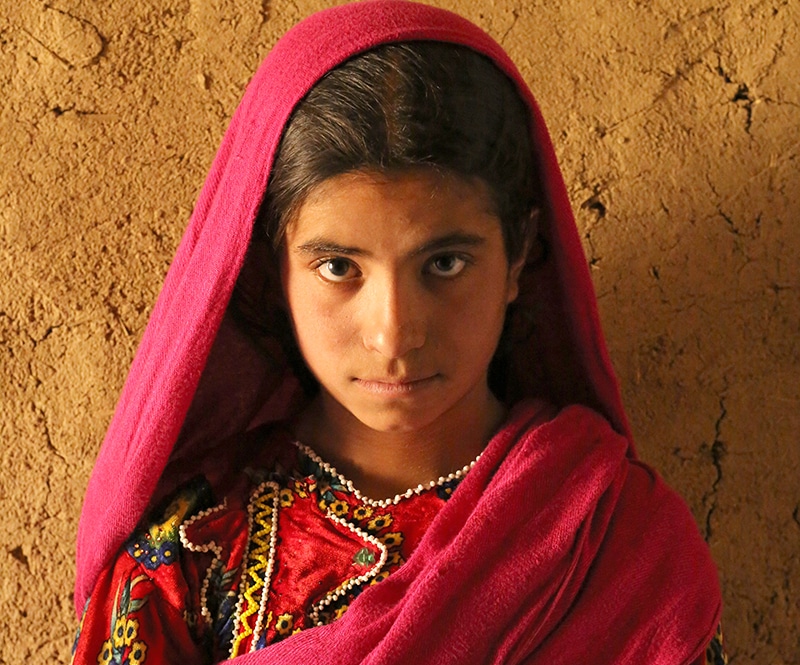
Some have argued that these Olympians should have competed on the Refugee Olympic Team and that the International Olympic Committee (IOC) should have barred them from representing Afghanistan to make a statement against the Taliban’s atrocities against women.
One person making this argument is Friba Rezayee, a female Afghan who competed in the 2004 Olympic Games. On July 17, 2024 she wrote an op-ed in the New York Times stating, “The IOC’s decision to allow a team from Afghanistan to compete is an act of recognition – although perhaps unintentional – of a regime that punishes women for participating in sports.” She goes on to talk about how none of the three women competing in the 2024 Olympic Games lives and trains in Afghanistan nor can they visit without risking their lives.
However, in a Rolling Stone article published on August 2, 2024, former Afghan Olympic athlete and IOC member, Samira Asghari, argues in favor of letting the athletes compete under the former Afghanistan flag. She says that millions of Afghans still love the old flag and that for some, it represents freedom. “We can show the Taliban that if you do not allow women to represent themselves, to show the world that they exist and that they have passion for sport, we have that platform,” she writes. “The IOC can show women that we support you and your rights as athletes.”
Central Asia Institute has been working to advance education in Afghanistan, especially for girls and women, for over two decades and we continue to work there today. While we have been forced to curtail some of our programs due to the Taliban’s restrictions, we provide education to over 5,500 girls. We see the battle for girls’ education and women’s rights play out every day in the communities we serve. Afterall, educating an Afghan girl – or boy – is one of the most effective ways to fight back against the Taliban.
While they didn’t win gold, CAI would like to honor the brave women who competed in the 2024 Olympic Games. We are inspired by their commitment to their country’s freedom, and their courage to compete on behalf of a nation of women living in the dark shadow of the Taliban.
If you want to support CAI and our work in Afghanistan, please consider donating today. Every dollar goes to help girls get access to education, and to support female teachers who believe in the power of education to change the world.
Each summer, Central Asia Institute welcomes students from around the country – and the world – to work as summer interns. Our internship program not only affords students the opportunity to work alongside our team and gain firsthand experience in international development and non-profit management. It also provides CAI with valuable input and support from extremely talented and accomplished young people who represent the next generation of leaders and change makers. This summer, we’re thrilled to have several very special interns joining us from Afghanistan and Pakistan who are studying at U.S. universities.
CAI’s Executive Director, Alice Thomas, recently sat down with one of our interns, Rida, to learn more about her and what drew her to CAI’s mission of advancing education, especially for girls.
Q: Tell us more about yourself and where you’re from.
A: I’m Rida, originally from Quetta, in Pakistan. I grew up as the eldest among my two younger siblings and was raised by a single mother. As a first-generation student, I’m humbled by the opportunity to break barriers and forge a path for my family. My upbringing in Quetta has instilled in me a deep sense of humility and community, guiding my journey as I strive to make a difference.
Quetta is located in southwestern Pakistan and is situated near the border with Afghanistan. Growing up there, I was surrounded by beautiful mountains and a rich culture. Quetta’s culture is made of different traditions, languages, and customs, all because of its diverse population and long history. The people of Quetta are renowned for their warmth and hospitality. Unfortunately, the city has faced security challenges due to its proximity to conflict zones and geopolitical tensions.
Q: What brought you to the United States?
A: I’m here in the United States on a Fulbright Scholarship, pursuing a Master’s degree in International Development Studies at Ohio University. My focus is on the intersection of gender and development, exploring how global politics and collaborative efforts can effectively address pressing issues for sustainable development. Additionally, I’m passionate about leveraging technology for social impact and how we can use it to bridge the gap between global policies and grassroots initiatives to ensure that development efforts are inclusive and impactful.
I came to the United States initially as a cultural exchange ambassador at the University of Wisconsin-River Falls in 2018. During my semester there, I found the experience incredibly enriching and realized that I wanted to pursue further education in the U.S. That’s what led me to return.
Q: As a woman from a culturally conservative part of Pakistan, tell us what it means to you to get an education?
A: Education has been a transformative force in my life. Throughout my life, I have studied on scholarships that have granted me access to education in a society where opportunities for women are often limited. Education has served as the key to unlocking incredible academic and professional opportunities. These opportunities have enabled me to come to the United States all the way from Quetta, Pakistan to pursue my passions. It’s through education that I’ve gained the personal freedoms to shape my own future.
In Balochistan, where UNICEF reports a shocking 78 percent of girls are out of school, the urgency to address this issue is undeniable. This is why my internship at the Central Asia Institute resonates so deeply with me; it offers a direct avenue to confront this pressing challenge head-on. Drawing from my own journey and the lasting impact education has had on me, I am excited about the opportunity to utilize my skills and passion to contribute to efforts aimed at removing obstacles to education, especially those hindering girls’ access and empowerment.
Q: What are some of the challenges girls in Pakistan face that Americans might not be aware of?
A: Well, while Americans may be familiar with some of the hurdles girls face, such as systemic lack of resources and limited educational opportunities, especially in rural areas, there are additional complexities that deserve attention. Let me share a memory from my school days that sheds light on the challenges faced by girls in Pakistan. I had a best friend, someone I’d known since the first grade. She was a remarkable girl with big dreams. I remember her vividly, always talking about Benazir Bhutto and how she aspired to be a leader like her one day. But then, in 8th grade, she told me she wouldn’t be coming to school anymore because her family had arranged her marriage. It broke my heart, not only because I was losing my friend, but also to witness her aspirations being taken away at such a young age. Here was this bright, intelligent girl with big dreams, suddenly being forced into a life she didn’t choose.
And that’s not the only story that stays with me. I had another friend, someone who was practically a member of our family. He had a daughter, just three years old a couple of years ago. He used to talk to me about wanting to give her the same opportunities I had – a chance to study, to learn, to grow. But his hopes were dashed by the oppressive values that still prevail in our society. His family and extended relatives ridiculed at the idea of sending a girl to school, labeling it as dishonorable. Despite his best intentions, he was caught between his desire to give his daughter a better future and the weight of societal expectations.
These stories are all too common in Pakistan. They show the hurdles girls face in pursuing their education and realizing their potential. But they also fuel my determination to advocate for change and work towards a future where every girl has the opportunity to achieve their dreams.
Q: What do you like most about the United States? What do you miss most about Pakistan?
A: One of the things I appreciate most about the United States is its diversity and inclusivity. Being able to interact with people from different backgrounds and cultures has broadened my perspective and enriched my overall experience. Additionally, what I like about the United States is the vast array of opportunities it provides. Here, I’ve always felt that my voice is heard and that I have the chance to pursue opportunities based on my efforts.
Nonetheless, I do find myself missing the warmth of my homeland, as well as the strong connection to my roots and the family ties that are deeply ingrained in the culture. There’s a warmth and closeness in relationships back home that I sometimes find myself longing for. And of course, I miss the delicious Pakistani cuisine!
As many of you will recall, Preschool #2 is located in the mountain town of Barushan in Tajikistan. Barushan is located in Gorno-Badakhshan Autonomous Oblast (GBAO), a remote and marginalized region of the country situated among the Pamir Mountain range and some of the highest peaks in the world. One-third of GBAO’s inhabitants live in poverty. Shockingly high numbers of children are malnourished and lack access to the most basic necessities such as clean drinking water.
Preschool No. 2, the only preschool in the village, was built in 1962. Constructed with sub-standard materials, the building quickly fell into disrepair. The walls and ceilings were sagging in places, creating a dangerous learning environment in this earthquake-prone area. The air was damp, and mold was visible in the corners. The toilets were broken wooden outhouses with no running water. While the teachers were doing their best, they lacked the facilities, training, visual aids, and toys to support an educational process that would allow these young children to fulfill their potential as students.
CAI stepped in to help and plans for a new school were laid. Four years later, thanks to the dedicated support of so many donors, the doors of the new Preschool #2 were opened to the community during a formal ribbon-cutting ceremony. CAI hosted a virtual event on May 1st to celebrate the project’s completion and take our generous supporters through a tour of the finished school. We are extremely proud of the final result and hope that you will be, too!
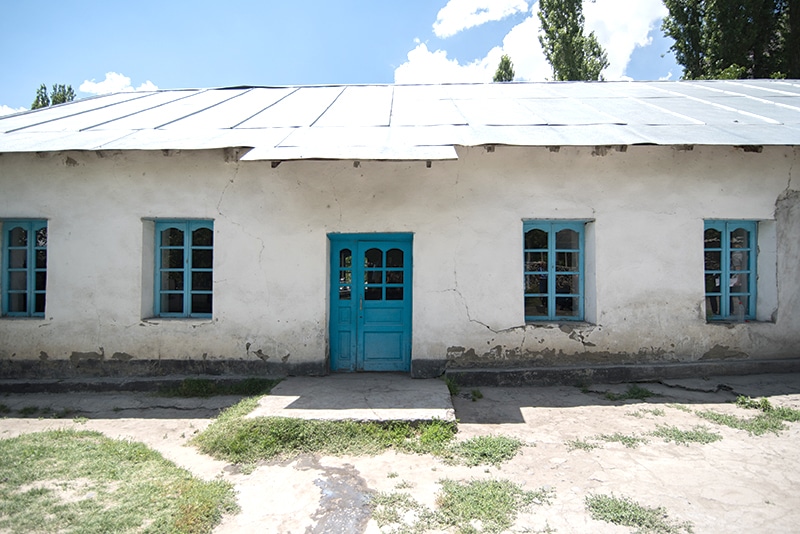
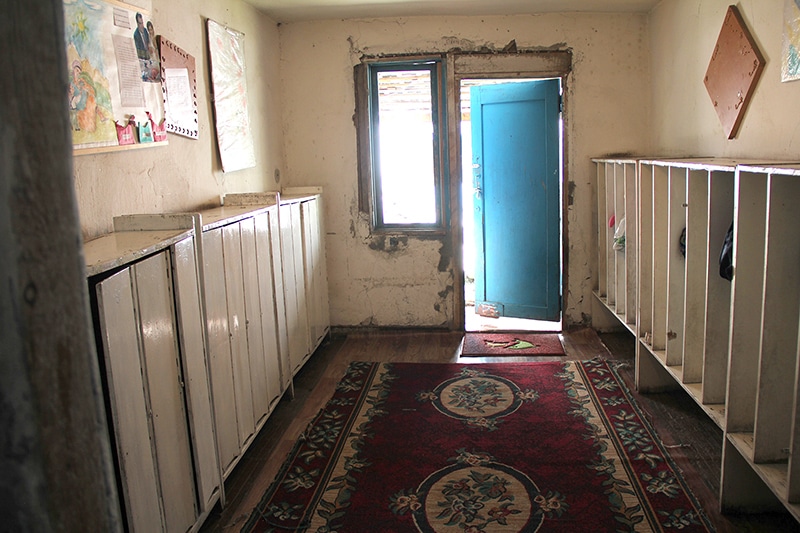
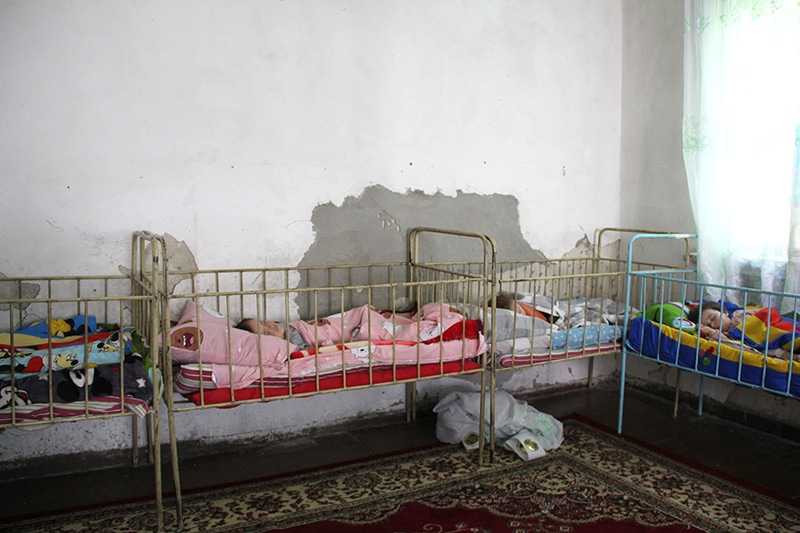
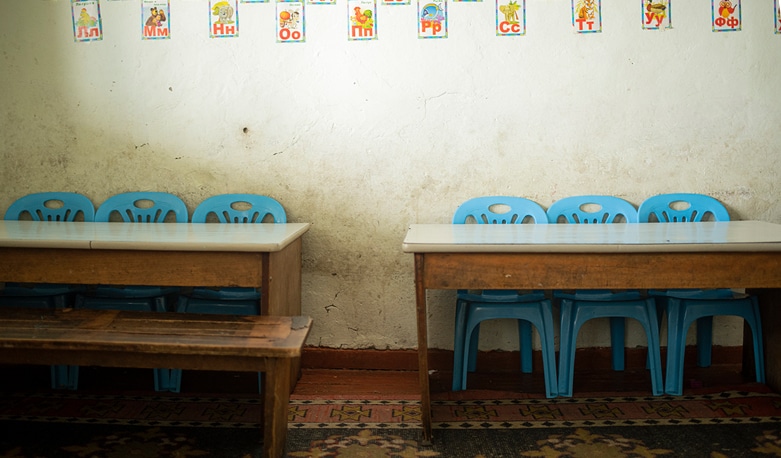
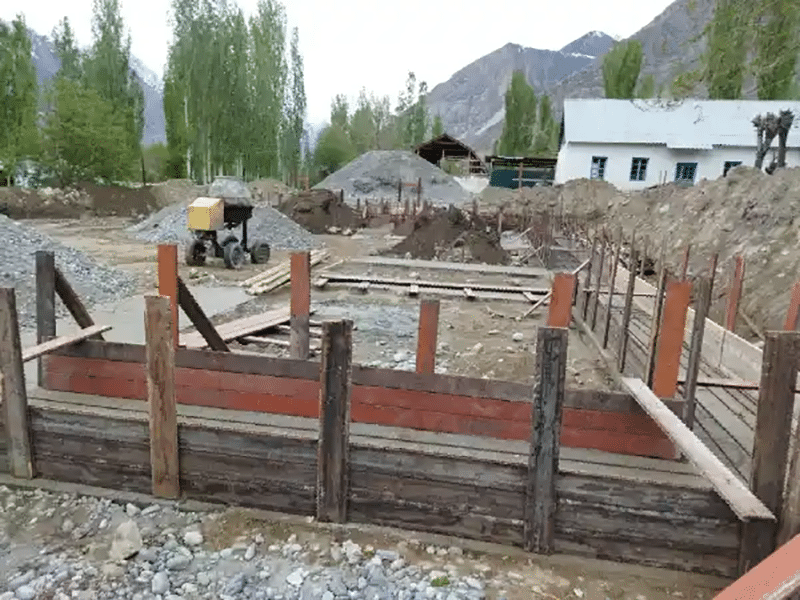
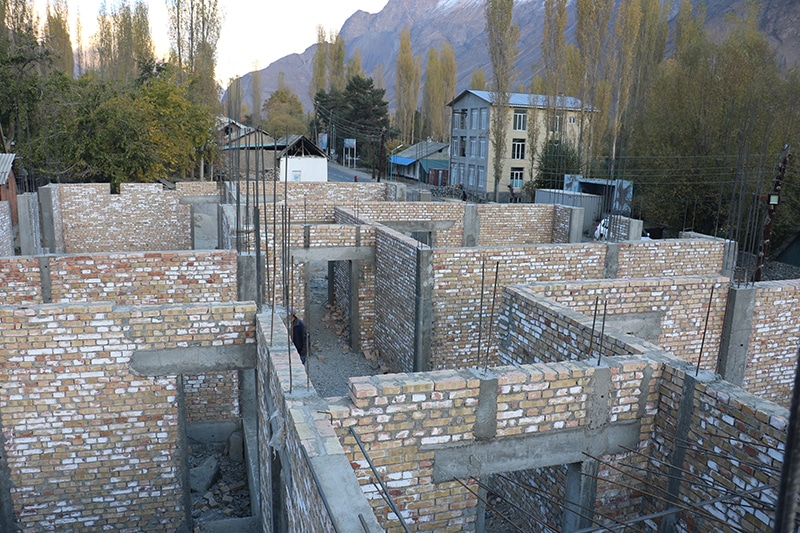
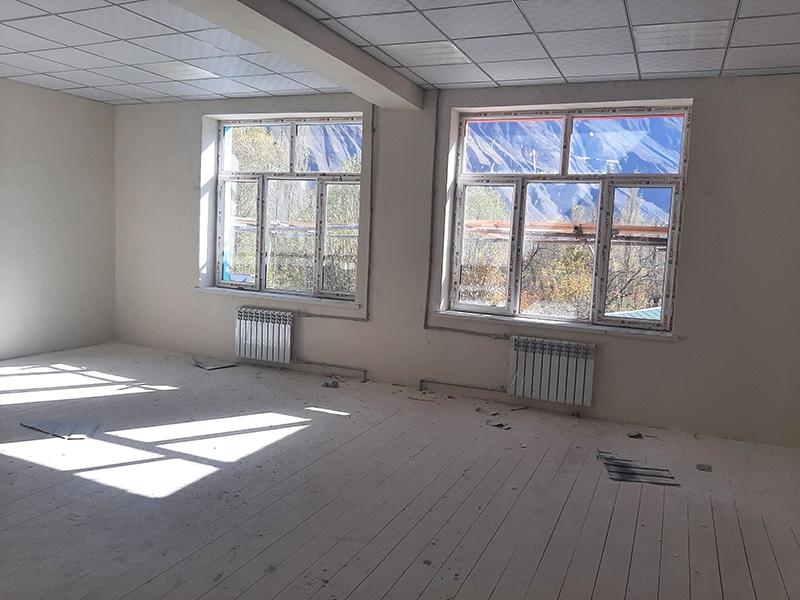
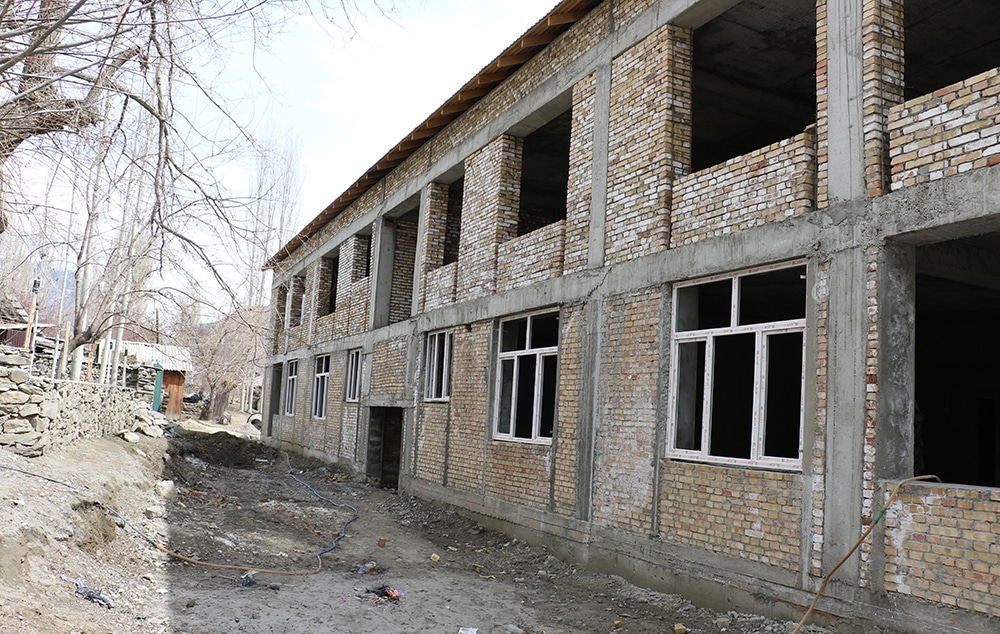
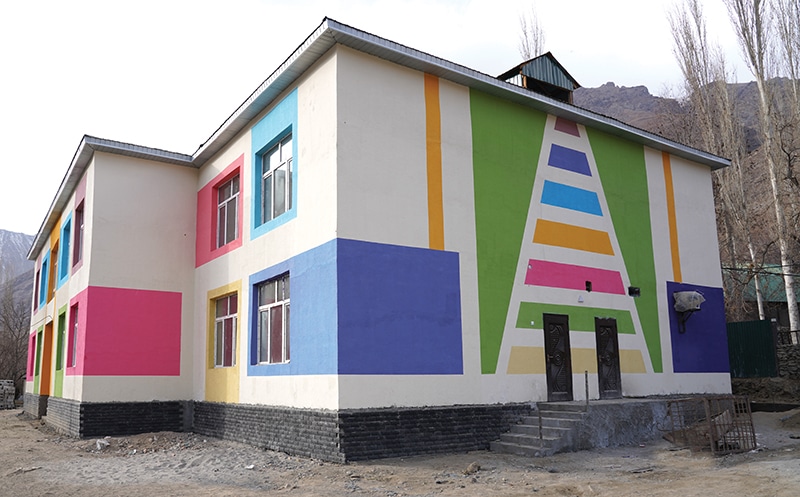
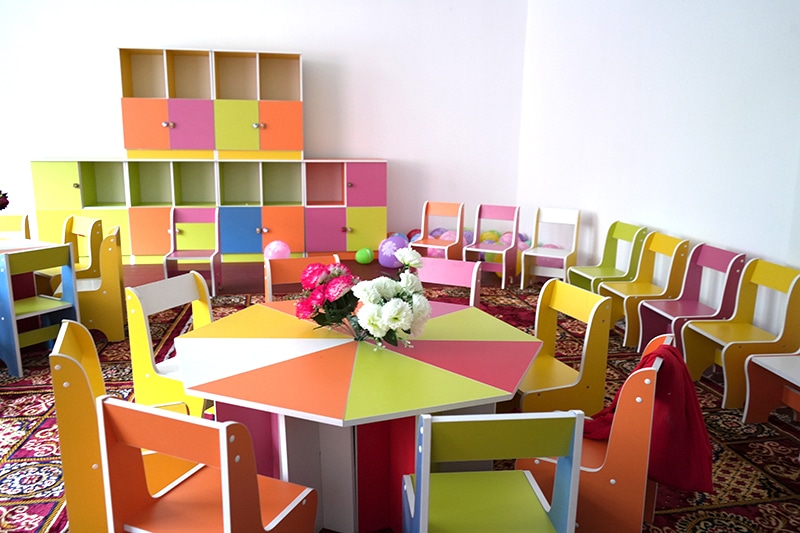
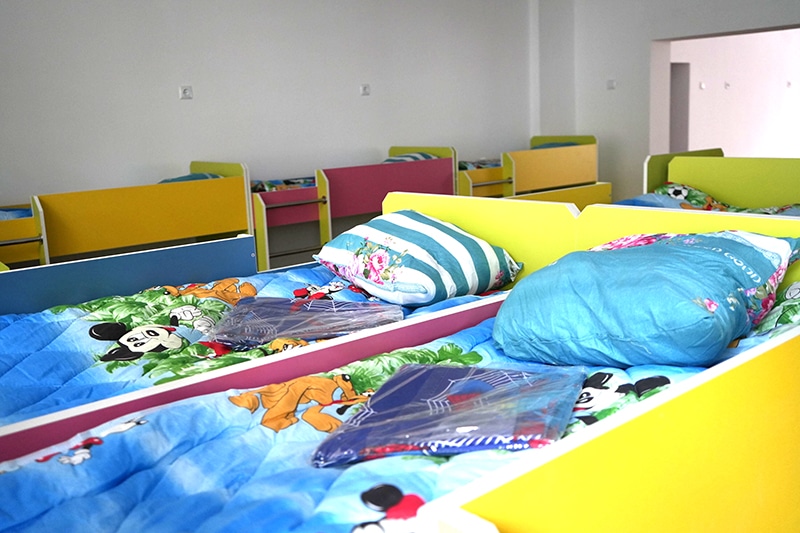
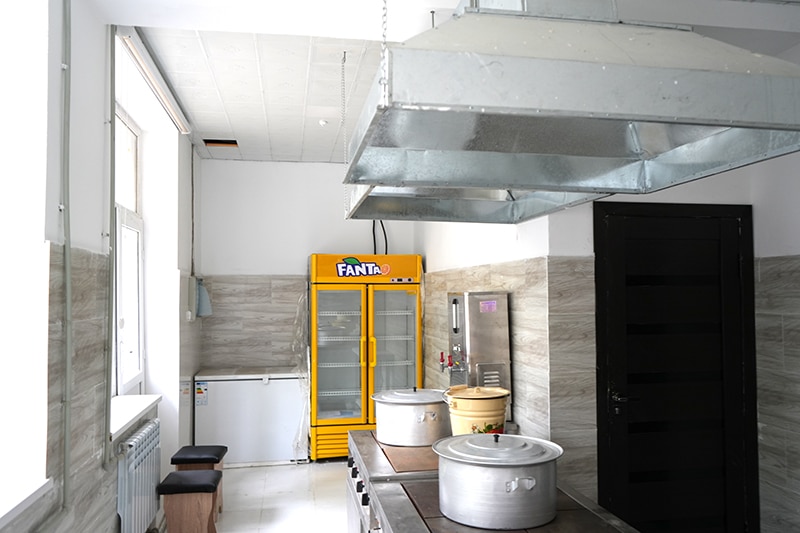
In the remote Rast Qol village of Afghanistan, eight-year-old Rana and her grandmother are the best of friends. After Rana tragically lost both parents in a car accident at the age of three, her grandmother became her full-time caregiver. They got by on subsistence agriculture and income from Rana’s uncle, who runs a small shop in the village. But there were simply no options for school—that is until CAI opened a community-based classroom in Rana’s village.
Since joining two years ago, Rana has flourished.
“I have learned a lot of good things. And now I can read and write!” she shared enthusiastically.
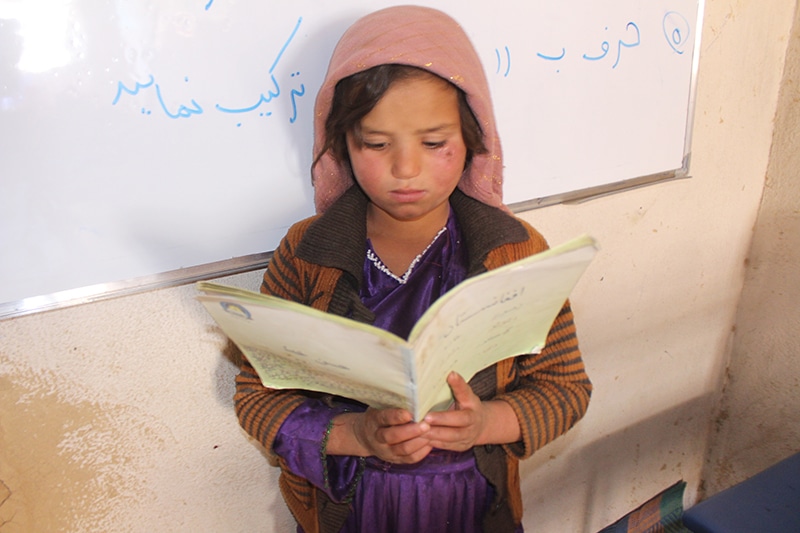
Rana is one of the thousands of students who would not have been able to attend school at all without CAI and the many donors who fund our work. The school has not only provided Rana with a strong educational foundation but also increased her social support network.
In the words of her teacher, “She is a hardworking and eager learner. And since no one in her family has been formally educated, I am providing her with extra support to ensure she succeeds.” Education is the most crucial path towards change and progress for women, and that is why we are committed to supporting girls like Rana.
Kabirova’s journey is a testament to resilience. An early marriage forced her to halt her education prematurely. Eager to find ways to use her skills and contribute to her family’s income, she pursued her passion for sewing, selling her first creation for $0.18 cents. Juggling family responsibilities and her budding business, Kabirova established a sewing workshop with local backing.
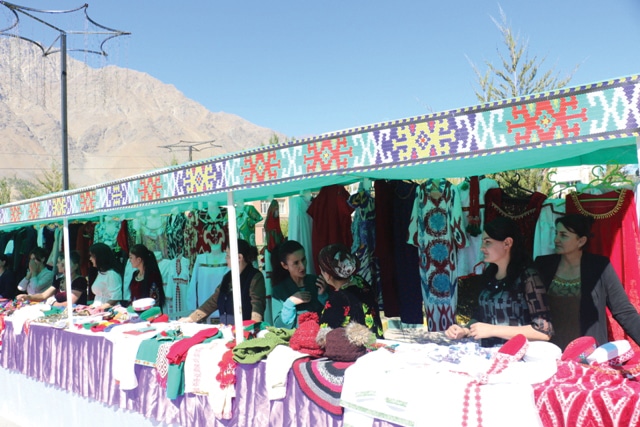
Yet, challenges persisted. It wasn’t until Kabirova enrolled in a women’s entrepreneurship training supported by CAI-Tajikistan that her vision truly blossomed. Through the training, she gained crucial financial and management skills and modern sewing techniques and equipment allowing her to propel her business to new heights. Her workshop is currently valued at USD 3,586 and employs 15 women.
“I am very proud to be one of the successful women entrepreneurs in my village who can be a good example for the next generation.”
Today, Kabirova stands as a beacon of success. She credits what she learned in CAI’s training for her achievements, emphasizing the pivotal role education plays in shaping futures. Kabirova’s story epitomizes the enormous potential of so many women in this impoverished corner of Central Asia who, provided with the right knowledge and information, have not only transformed their families’ lives but also become active participants in the region’s development.
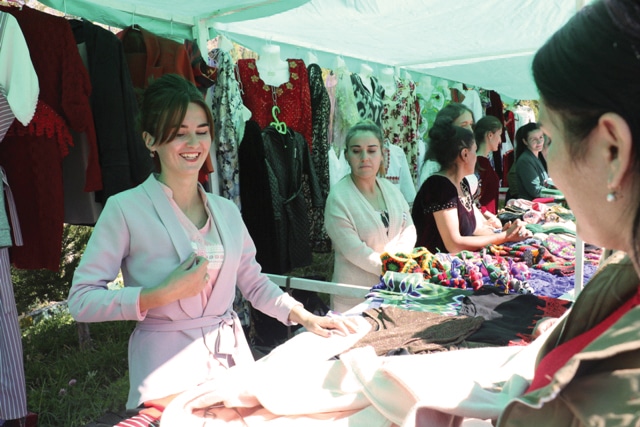
In Marudo Kharmang, Pakistan, Zehra has long appreciated the sweet taste and economic potential of the simple apricot. And yet, she struggled to raise consistent harvests and make the business viable and reliable. But she wasn’t ready to give up.
Central Asia Institute’s apricot program began with the goal of finding women like Zehra—already invested in the apricot sector but looking for the support to help them transform their skills into a viable business. Joining the program provided Zehra and her cohort with valuable agricultural training and skills, business training, and sessions on how to take the next step.

From simple apricots to dehydrated fruit, jam, and more, Zehra and her group learned how they could add value to their fruit. Since joining the program only a year ago, Zehra has seen her income grow from $136 per harvest to $438, a life-changing increase. And for Zehra, this is only the beginning. She plans to invest more time, effort, and training to keep her business going strong long into the future.
Read more about the early results from our apricot program and the difference it is making in women’s lives.
“I couldn’t write or read until last year, not even a single word,” shared 16-year-old Wajmah. As a girl in rural Afghanistan, Wajmah had been unable to attend school at all during her childhood. In addition to the geographic constraints of distant schools, and the restrictive policies of the Taliban, Wajmah had suffered an early loss. At 7 years old, her father passed away, and her mother was unable to afford school supplies, even if she had been able to get there.
But when CAI’s Accelerated Learning Center opened, affording basic education to those who had missed out on their primary school years, Wajmah started on a new path.
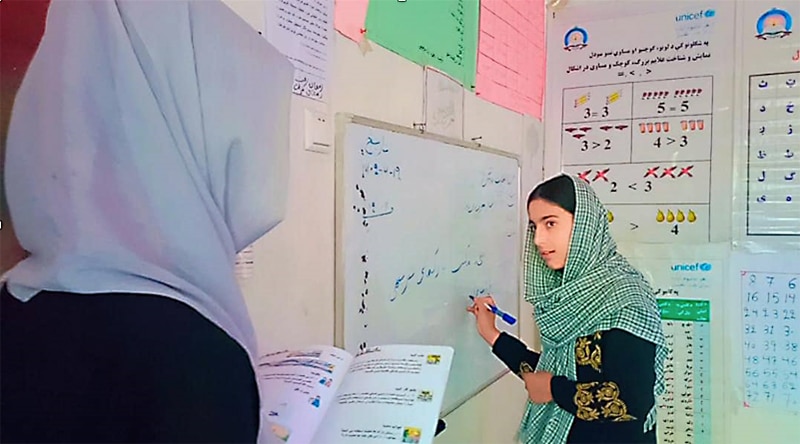
“Now I can read and write, not just my name, but even a few paragraphs.” And her efforts have borne impressive results on exams, scoring 90% in her first semester and 100% in her second semester.
Wajmah dreams of becoming a lawyer. Despite the oppressive Taliban regime, she is not giving up hope of a brighter future. And we are not giving up either. Read more about the work we’re doing to support girls’ education in Afghanistan.
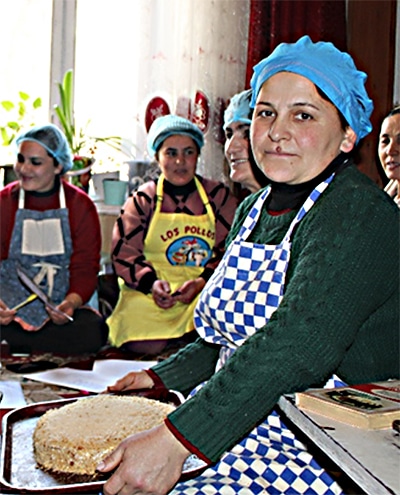 At 49 years old, Zarafshan has experienced significant strife in her home country of Tajikistan. Following the breakup of the Soviet Union, civil war broke out between the Gorno-Badakhshan region where she lives and the rest of the country. While peace was reached, the local population remains marginalized and government services are scarce, compounding poverty.
At 49 years old, Zarafshan has experienced significant strife in her home country of Tajikistan. Following the breakup of the Soviet Union, civil war broke out between the Gorno-Badakhshan region where she lives and the rest of the country. While peace was reached, the local population remains marginalized and government services are scarce, compounding poverty.
There were many times when circumstances could have overwhelmed her. And yet throughout this, she managed to get an education, get married, and raise three beautiful children. But it was often difficult as she and her husband faced chronic unemployment.
For Zarafshon, a training offered by Central Asia Institute – Tajikistan was the start of her journey to stability. After attending an initial financial literacy training, Zarafshon joined the inaugural class of the ASPIRE women’s entrepreneurship program, launched by CAI-Tajikistan in 2019. She utilized the knowledge she attained in the training and her cooking skills to start a small business.

Today, nearly three years later, her business is thriving. She bakes, on average, 80 kulcha (mini bread loaves), each day, earning a $30 daily profit. And her family has joined in on the venture. Her oldest son helped her write a World Bank grant application, which they won, awarding them $1,500 for additional equipment. This women’s month, we’re proud to celebrate Zarafshon and her perseverance to take a chance and believe in herself!
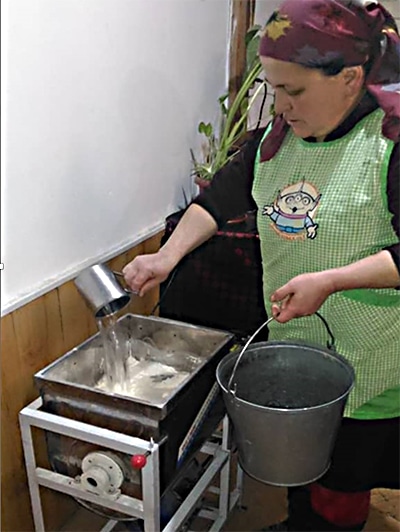
Throughout the month of March, Central Asia Institute is celebrating all the incredibly inspiring and dedicated women and girls of Central Asia. But to fully understand the extraordinary things they are achieving each day, it’s important to first understand the enormity of the challenges they face.
Imagine for a moment being a girl in Afghanistan today, a country often ranked as the worst country in the world to be a woman. If you are lucky enough to be among the minority of children enrolled in school, you will be banned from studying beyond Grade Six because you are a girl. By the time you are 16, there is a good chance you will have been forced into early marriage to a man far your senior and not of your choice. Most likely you will have little to no control over how often you get pregnant. And the likelihood that you’ll die in childbirth is among the highest in the world. You’ll face high rates of violence and will be denied access to healthcare, work, and freedom of movement.
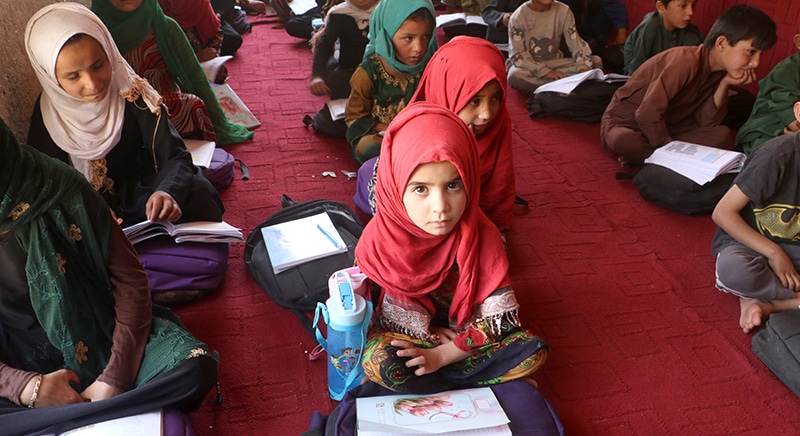
For females born in the remote, impoverished regions of Pakistan, the situation is not a whole lot brighter. Less than half of girls attend school and for those who do, an estimated 80% are forced to drop out before high school. As a woman in neighboring Tajikistan, you’ll have few employment opportunities, and if you do have a job, your income will be far below that of men, offering little hope for pursuing your dreams or helping to lift your family out of poverty.
But amazingly, the girls and women of Central Asia overcome these dark forces every day. We’d like you to meet a few of them.
None of these programs would have been possible without the unwavering and generous support of CAI’s donors. This women’s month, we also celebrate them for believing in the women and girls of Central Asia throughout the year. They are proof that when we reach across cultural and geographic divides to support each other, we can start to shift the norms and expectations in regions where women have been systematically excluded from so many parts of society. Together, we can clear the way for women like Wajmah, Zehra, and Zarafshon to blaze new trails for themselves and the next generation of women.
Supporters of Preschool #2 (P2) in Tajikistan will be able to celebrate soon! Four years ago, we broke ground on P2, and so many of our dedicated donors immediately joined us in the project as Brick Layers, funding the construction of this model school that will serve the Khorog community for many years to come.
Due to the extremely remote and unstable nature of the areas in which we work, project timelines are dependent upon the availability of both supplies and labor, so we are grateful to everyone for their patience and steadfast belief in the project. We’re excited to share some photos of the school during its various stages of construction, culminating in how it looks today.
With only a few finishing touches left, the doors to Preschool #2 will soon open to 120 eager students. Stay tuned for additional photos and a video tour of the school.
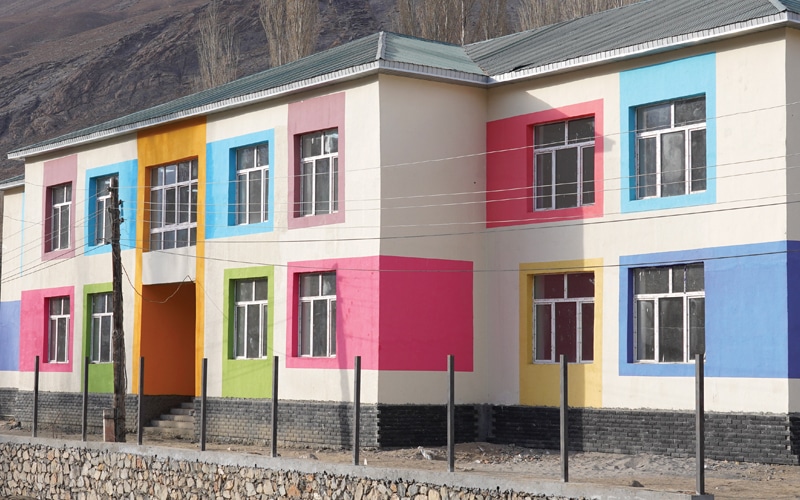
The final result is a school that students, teachers, and families are immensely proud of. This building would never have been possible without YOUR support. Thank you for caring about the preschool students of Barushan, Tajikistan, and for sharing your resources with them. Stay tuned for a full video tour of the building!
Between 7 and 15 October 2023, Herat Province, Afghanistan, endured a series of three powerful earthquakes, each registering a magnitude of 6.3 on the Richter scale. The initial two earthquakes, occurring on 7 and 11 October, inflicted profound devastation, resulting in the tragic loss of 1,480 lives and leaving 1,950 individuals injured.
With your support, we were able to rapidly mobilize funds to support survivors of the earthquake. Read on to find out the difference that your contribution made:
Coming together to help
Central Asia Institute and our Afghan partner, WADAN, coordinated closely with provincial leaders and the Directorate of Public Health and Directorate of Disaster Relief. We also joined meetings with the Regional Cluster to ensure synergy, prevent duplication, and target the most vulnerable demographics. With these partnerships, we were able to identify 35 female health workers requiring assistance to carry out their duties, as well as 80 child-headed households not being served by other organizations.
Your gift made a difference
In the course of our outreach, your contributions funded direct cash assistance to 80 Child Headed Households, helping them to meet immediate needs and begin rebuilding their lives. Your gift also enabled us to distribute financial incentives to 35 Female Health Workers who had volunteered their services for transportation, communication, and food expenses for two months. These health workers played a critical role in providing healthcare services to the affected population.
Sharing words of relief and gratitude
One health worker, Ms. Amina Mohammad, expressed heartfelt gratitude for the assistance. While she felt called to volunteer during the dire tragedy, the financial incentive helped alleviate burdens to her own family. “I do not have a regular salary and so this support will play a critical role in ensuring my children’s basic needs are met.”
Another female health worker, Mrs. Kubra Qadir, echoed feelings of appreciation. As the sole provider for her household, she explained the profound impact this assistance would have on meeting her family’s needs.
Similar sentiments were expressed among the child-headed households. Mr. Sardar, a relative of one of the children tragically orphaned by the earthquake, extended heartfelt gratitude to CAI for their donation. With the loss of their parents, many of these children rely heavily on the support of relatives, yet the stress of such responsibilities often surpasses the means of these households already grappling with their own hardships.
In March 2023, Central Asia Institute and Pakistan partner Moawin Foundation launched a new economic empowerment project for women in the breathtaking region of Baltistan. Focused on harnessing the potential of apricots, the initiative aimed to tackle the longstanding issue of mismanagement of this valuable fruit in various parts of Baltistan.
The project, implemented across three districts—Kharmang, Ghanche, and Shigar—provided training opportunities to women without such support. Recognizing the untapped potential of apricots in Baltistan, the initiative targeted villages where apricot wastage was rampant, particularly focusing on widows and women from poor backgrounds.
Within the districts, villages like Daghoni, Mayurdo, and Nar became hubs of activity as women enthusiastically participated in training sessions on apricot dehydration, jam-making, mulberry preservation, and product marketing. The comprehensive skill development programs not only opened financial opportunities but also instilled a newfound sense of confidence in their abilities.
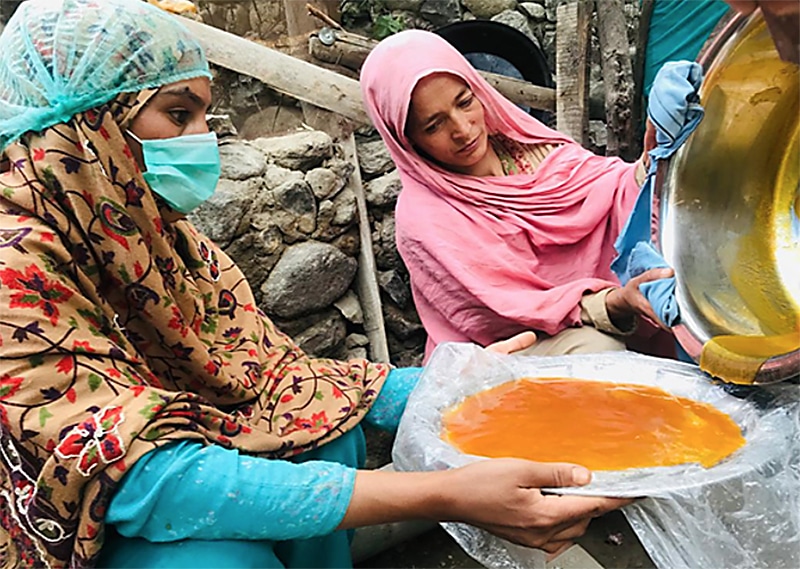
Early post-training evaluations revealed promising results. In Daghoni Ghanche, where apricot wastage was a significant concern, the project introduced innovative preservation techniques for the first time. Once marginalized, women like Gulibi and Fizia emerged as successful entrepreneurs, generating income through the production of jams and dried apricot products. The 20 participants in Daghoni increased their income by an average of 180%.
The impact of the Apricot Dehydration Project goes beyond individual success stories. It addresses the issue of apricot wastage, fosters economic development, and empowers women to lead sustainable income-generating ventures. The project serves as a successful example of community development, blending traditional practices with modern techniques for sustainable income generation in previously underserved regions. As these women continue to thrive, their success reverberates through their communities, paving the way for a brighter and more prosperous future in the breathtaking landscapes of Baltistan.
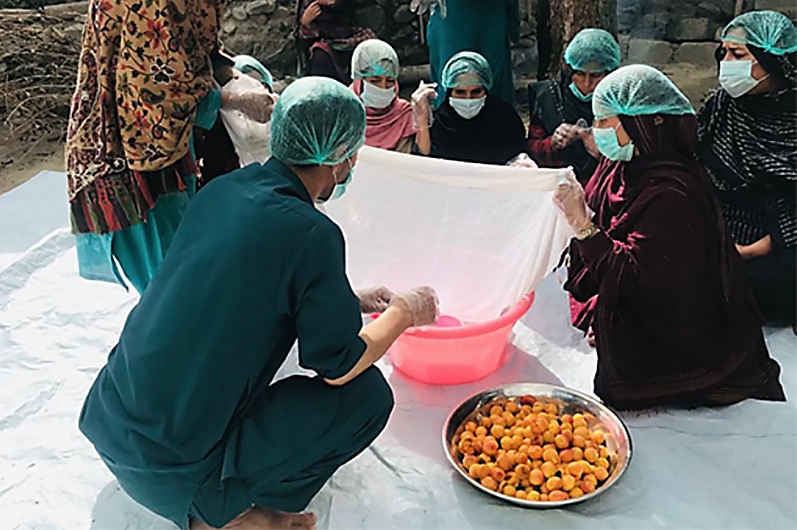
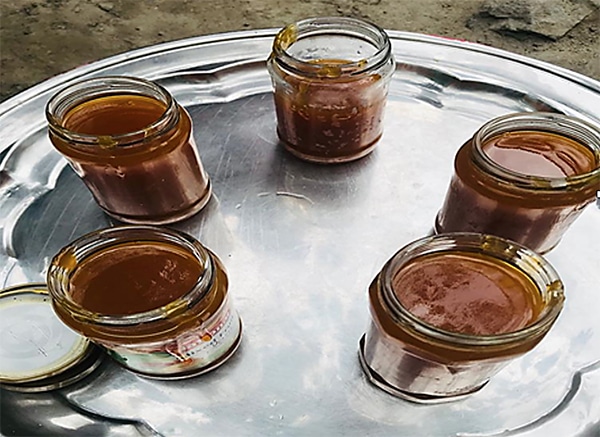
By Tonya Andrews
Central Asia Institute is proud to welcome two new distinguished individuals to its
Board of Directors: Ambassador Richard A. Boucher and Raja Akram.
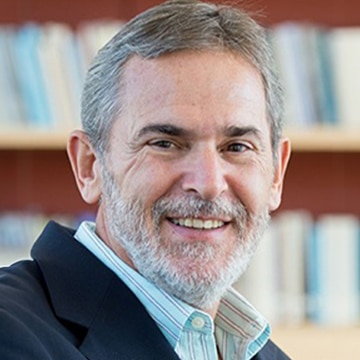 Richard’s career has been marked by significant roles in diplomacy, including serving as U.S. State Department spokesperson and Assistant Secretary of State for South and Central Asia. His extensive work in Pakistan, Afghanistan, and Central Asia provided him with a profound understanding of the region’s complexities. However, it was his shift back to teaching at both the University of Michigan and Brown University that allowed him to return to his foundational values and engage again with the field of education. “I loved the time with the students, loved the feeling that you were changing their lives,” Richard shared. The career transition was driven by a desire to offer students a more nuanced perspective on global issues, his field of specialty.
Richard’s career has been marked by significant roles in diplomacy, including serving as U.S. State Department spokesperson and Assistant Secretary of State for South and Central Asia. His extensive work in Pakistan, Afghanistan, and Central Asia provided him with a profound understanding of the region’s complexities. However, it was his shift back to teaching at both the University of Michigan and Brown University that allowed him to return to his foundational values and engage again with the field of education. “I loved the time with the students, loved the feeling that you were changing their lives,” Richard shared. The career transition was driven by a desire to offer students a more nuanced perspective on global issues, his field of specialty.
Richard’s passion for education was first ignited during his Peace Corps service in Senegal, where he taught English. “I felt like I was opening up [the students’] lives a little bit and giving them some ability to look at the world,” he recalled, noting that he felt his work helped to broaden students’ perspectives and unfurl new possibilities for their futures.
Richard’s commitment to teaching is deeply intertwined with his belief in the transformative power of education to serve as a catalyst for personal and societal change. “Every single kid you educate is worthwhile,” he emphasized. “You never know which one is going to be a teacher, a doctor, or even a president.”
When asked why Richard was eager to join CAI’s board, he replied:
“I still have that Peace Corps mentality in me from the old days. I think, even under the difficult circumstances that exist in all these countries, CAI can reach some of those people and help them. Kids in rural villages have just as much right to learn and become educated as the kids
in the capitals do. And that is very important and worthwhile work. I look forward to contributing to the success of
CAI’s mission.”
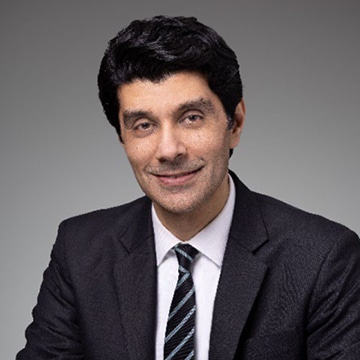 Raja’s journey began in Pakistan, where he was born and raised before moving to the United States for college. He attended Texas A&M University, after which his professional life took him and his family to Texas, California, New York, and even Latin America.
Raja’s journey began in Pakistan, where he was born and raised before moving to the United States for college. He attended Texas A&M University, after which his professional life took him and his family to Texas, California, New York, and even Latin America.
Currently a senior leader at Morgan Stanley, Raja is deeply involved in Environmental, Social, and Governance (ESG) initiatives. He explained, “ESG is about our practices around diversity and inclusion, our impact on climate, and our sustainability practices. It’s about being a good corporate citizen and making a positive impact on our employees, clients, and communities.”
Raja sees significant potential for applying these principles to CAI. “While ESG is often discussed in the context of corporations, it can also be relevant to nonprofits. At CAI, we can think about our footprint and our impact on the environment. This includes building schools in a sustainable way and considering our use of resources and waste management.”
In his daily work, Raja fosters an environment where team members feel comfortable expressing their ideas. “I believe in giving people the space to do their work and make mistakes. It’s the only way they learn and grow,” he said. In his view, a leader must be comfortable with sharing vulnerabilities, open to feedback, and willing to improve based upon it, which helps to create a culture of trust and open communication.
Raja’s decision to join CAI’s board was driven by a deep personal connection to the organization’s mission:
“I have an affinity for the Central Asia region because of my roots in Pakistan. This opportunity allows me to give back to a region that means so much to me. Additionally, when I think of my daughter who is 10, and the opportunities she has, and her love of reading, and everything she has accessible to her, and then I think there are probably so many children like her who do not have the same opportunities, and probably never will…this makes me excited to support CAI’s work in providing education to children who otherwise might not have the opportunity.”
By Marianne Monoc
A legacy in many ways symbolizes our life, values, and dreams. Whether we hope to be remembered as a caring parent, a trusted friend, a loving spouse, a concerned citizen, or even a philanthropist, we all wish to make a positive, and hopefully lasting impact on the world.
Many of our dedicated supporters have chosen to advance the values that are most important in their lives by providing a charitable gift to Central Asia Institute (CAI) through their estate plan.
Bonnie and Gary Chollet, long-time donors, share the reason they chose CAI for their planned giving.
“Our primary interest in our retirement is helping girls to get an education. The current situation in many countries in central Asia is dire for so many girls. We have been fortunate in our lives and use our RMD funds to help CAI. This organization uses its funds wisely, and we have been impressed by their work to help many girls. We feel so strongly about CAI that we have put the organization in our will.”
Regardless of the size of the gift, or how it’s made — via beneficiary designation, in a will or trust, or through a charitable gift annuity — you can provide funding to help support our mission and advance our work, as well as your personal charitable goals, for many years to come.
If you’ve ever read about our programs and thought, “I wish I could do more,” especially in today’s difficult economic times, you can! By leaving a planned gift to CAI in your will or trust (a gift that costs nothing up front), you can play a meaningful role in helping to achieve our vision of a world in which women and girls have the education and skills to unlock their full potential and contribute to a better, brighter future.
Over the years, you have made a significant difference by investing in CAI’s mission and the transformative power of education, changing lives and uplifting entire communities with your kindness. Make a legacy gift today, and ensure that your personal values continue to spread well beyond your lifetime.
For more information about how to designate CAI as a beneficiary of your estate, please contact us at info@centralasiainstitute.org or by calling 406.585.7841.
By Marianne Monoc
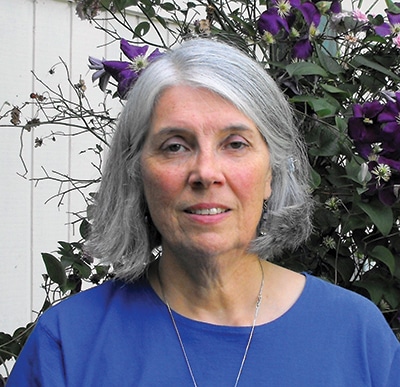
Marsha Williams first heard about CAI from her son, an avid mountaineer who had read a magazine article about CAI founder Greg Mortenson’s climbing adventures and the harsh, often unforgiving living conditions experienced by the communities he visited in his travels.
As a high school counselor for many years who was passionate about the field of education, Marsha was immediately drawn to the story and was touched by Greg’s inexhaustible determination to build a school in the region. A lover of exotic travel who is heading to Nepal this fall, Marsha had visited many Asian and Central Asian countries and felt drawn to assist in some way. On February 1, 2011, she became a CAI donor, and has generously supported our mission and programs since that day with a monthly sustaining gift.
A few years ago, Marsha began making an extra annual donation to CAI through her retirement account’s required minimum distribution (RMD). An RMD is the amount of money that individuals with pre-tax retirement accounts must withdraw from their accounts each year once they reach age 73. RMDs are designed as a government safeguard against people using a retirement account to avoid paying taxes. If you are over age 72 and elect not to take your RMD, you can be penalized by the IRS, with the amount not withdrawn subject to a 25% tax. Making a charitable contribution with your RMD can help you avoid tax liabilities, while at the same time supporting a cause that is close to your heart.
Marsha credits her decision to become more deeply engaged with charitable work to her sister’s husband, Dave, who passed away suddenly last year. Dave, an accountant, was helping her with some financial matters and asked her a couple of questions she had never considered before, “What is your philosophy of giving? What do you care a lot about?” That conversation made her really assess what was important to her and what kind of legacy she wanted to pass on to others. Her top interests and passions immediately rose to the surface: education, reproductive rights, environmental protection, and end-of-life care.
Marsha said that Dave’s question about her philosophy of giving changed her life and she is eager to share that experience with others:
“It caused me to reflect deeply, and I ask you to do the same. For me, I realized that I have plenty in my life and so giving of my own time, talent, or finances would not detract at all from my prosperity. I became much more thoughtful about my giving and increased it in support of the causes I care about. Those causes are going to vary from person to person, but I encourage you to ask yourself that same question and then discover where you can assist others in a way that is meaningful to you, whether big or small.”
Marsha has become an important member of our global community by continuing her monthly giving and helping fund special projects with her RMD. We are immensely grateful for her ongoing belief in our mission to advance education and livelihood skills for women and girls in Afghanistan, Pakistan, and Tajikistan.
Marsha’s story is an excellent example of how you can make an impact in multiple ways. Read on to find out more about CAI’s new donor recognition levels that make it easier than ever to support our work.
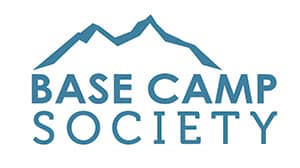
Make a Monthly Giving Commitment Today
CAI’s monthly sustainers automatically become members of our Base Camp Society.
In the world of mountain climbing, base camps are rudimentary campsites at the base of mountains used by mountain climbers during their ascent and descent. These areas are places of rest and safety, providing critical supplies and shelter. Similarly, CAI’s Base Camp donors provide the organization with regular and dependable monthly gifts that form the core of our support.
One of the most impactful ways to make a difference is through a monthly giving commitment. Your donation helps to strengthen and sustain the day-to-day work of CAI, enabling us to both plan for the future and react in real-time to circumstances that impact the communities we serve. Monthly gifts are also easy, convenient, and can be changed or cancelled at any time.

Mountaineers always seek the next challenge, often climbing technically difficult rock faces that require stamina and determination. Just like CAI’s donors, they are guided by the strength of their mission. We invite you to join CAI’s Mountaineer Society today.
By making an annual gift between $1,200 – $5,000, you will gain access to exclusive Mountaineer benefits, including:
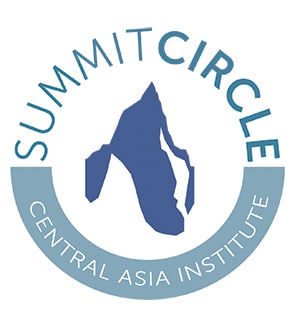
CAI’s Summit Circle recognizes the generosity of individuals and families contributing at the highest levels of personal giving. Summit Circle members affirm their deep level of commitment to CAI and its mission by contributing an annual gift of at least $5,000. As a Summit Circle member, you can establish yourself as a philanthropic leader, and pave the way in our mission to improve access to education, increase financial stability, and build vibrant and equitable communities in Afghanistan, Tajikistan, and Pakistan.
Join a network of like-minded charitable patrons dedicated to long-lasting, positive changes in our global community and enjoy the following benefits:
For more information about any of the levels discussed above, please contact the Development Team at info@centralasiainstitute.org.
KEEP UP WITH THE LATEST NEWS
Sign up to receive updates and stories from the field.
Privacy Statement | Copyright 2025 Central Asia Institute. All rights reserved. Site Map
CAI is a U.S.-registered nonprofit 501(c)(3) organization, EIN #51-0376237. Contributions may be tax-deductible in the U.S.